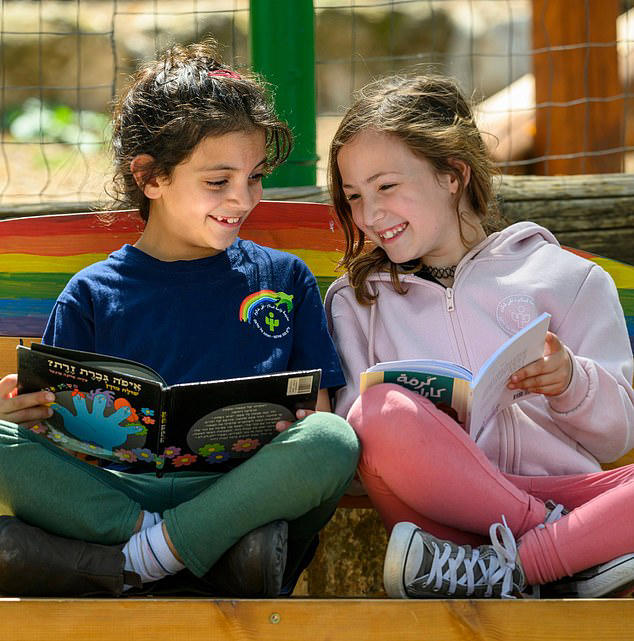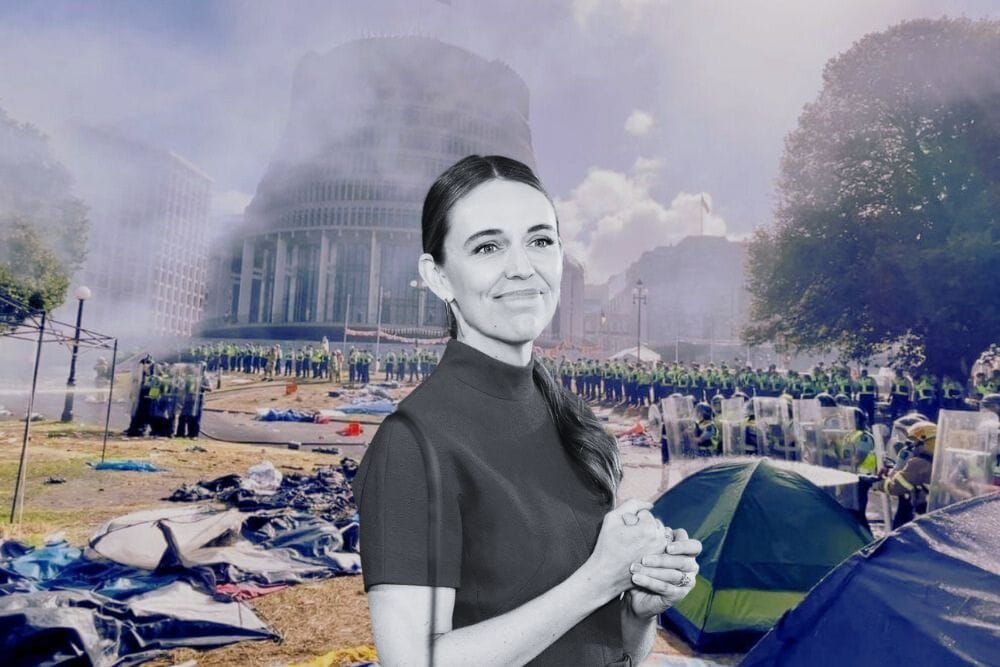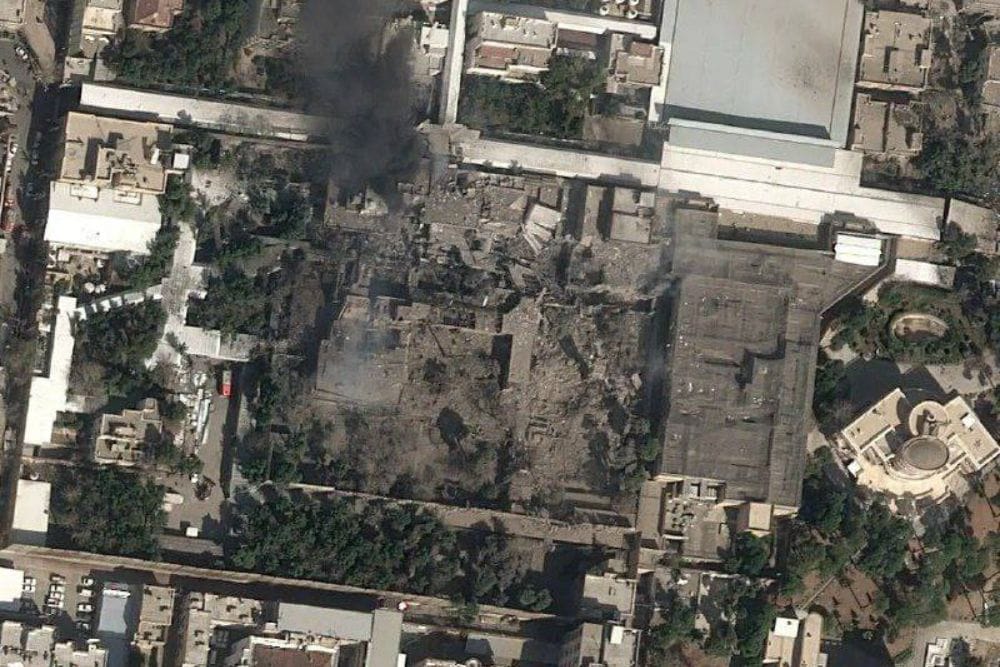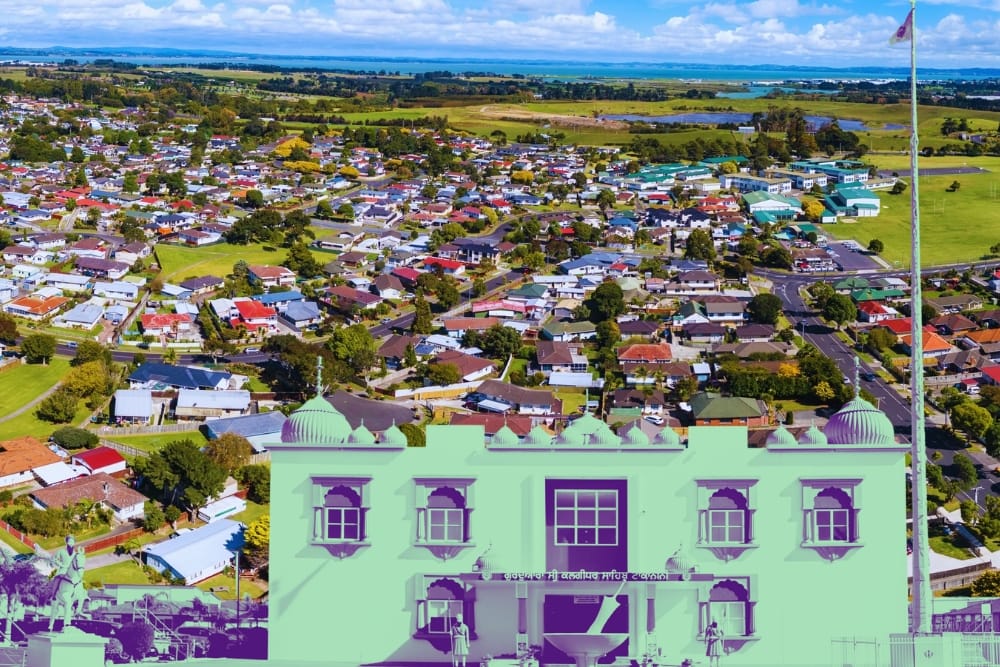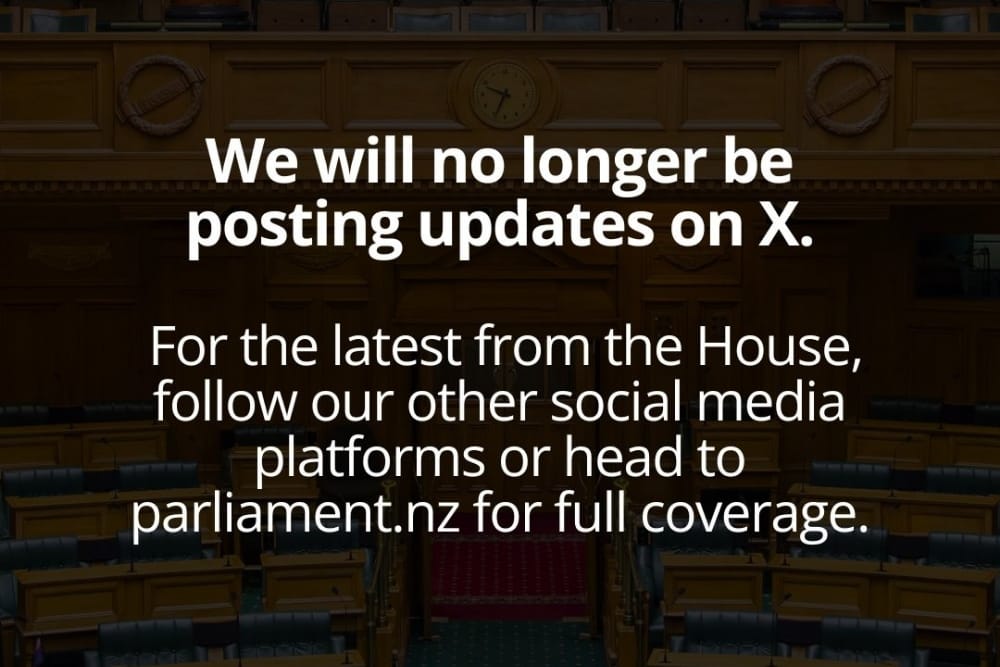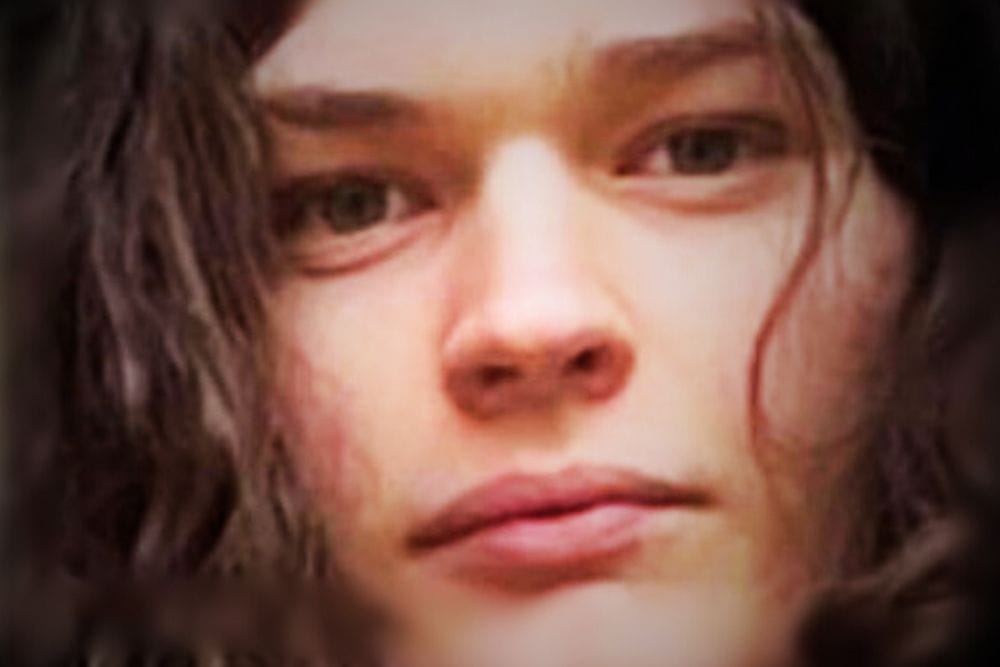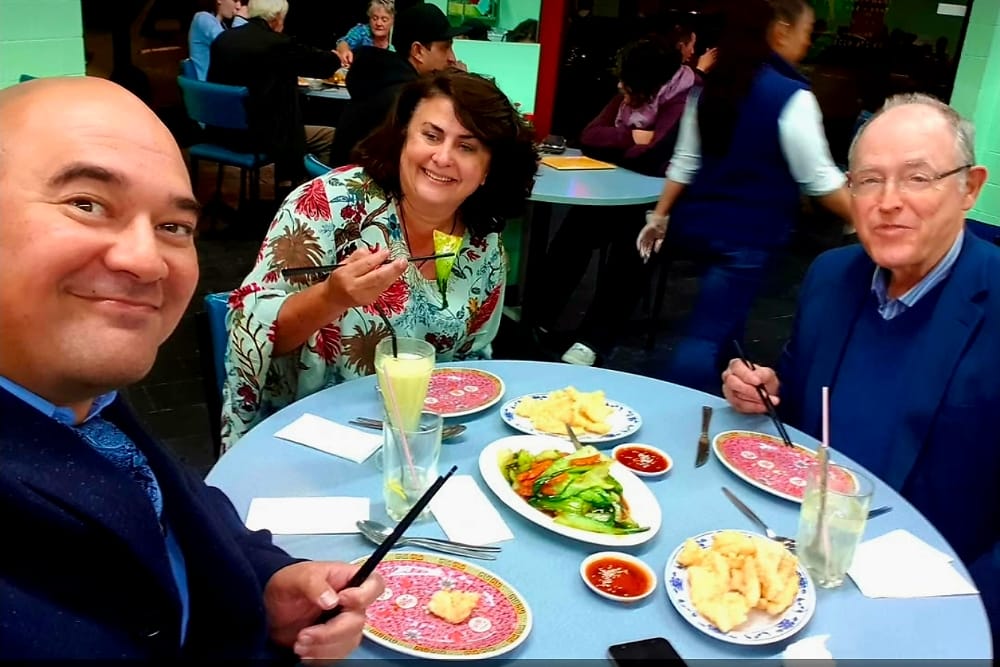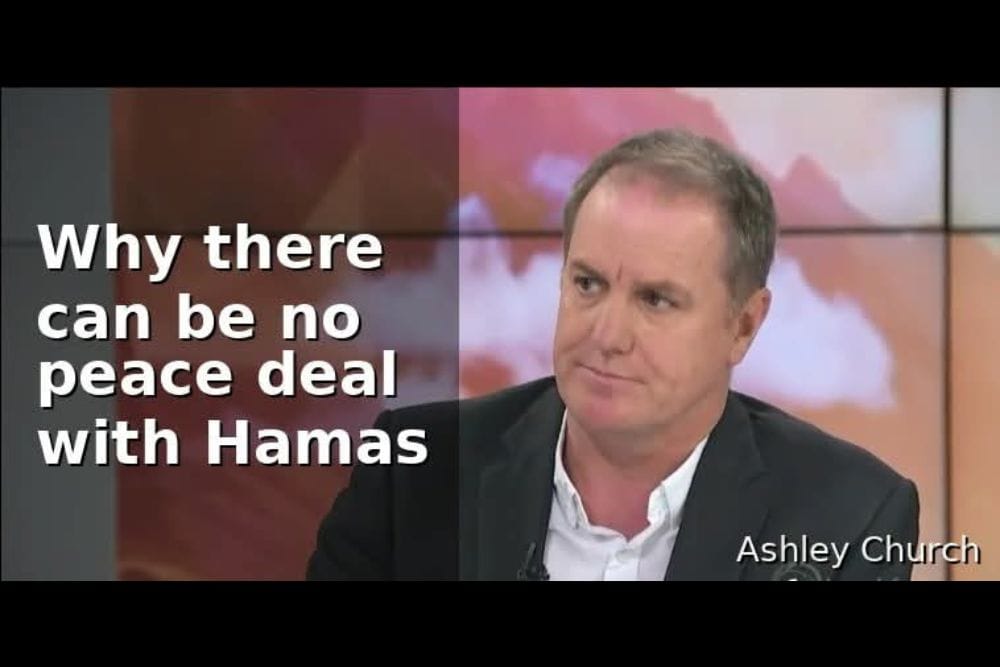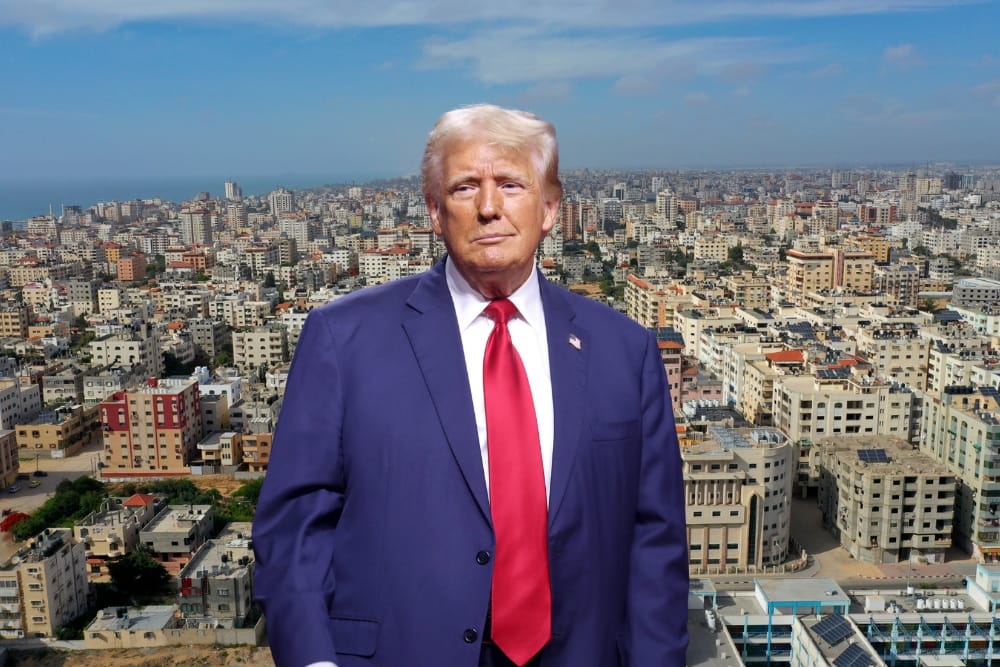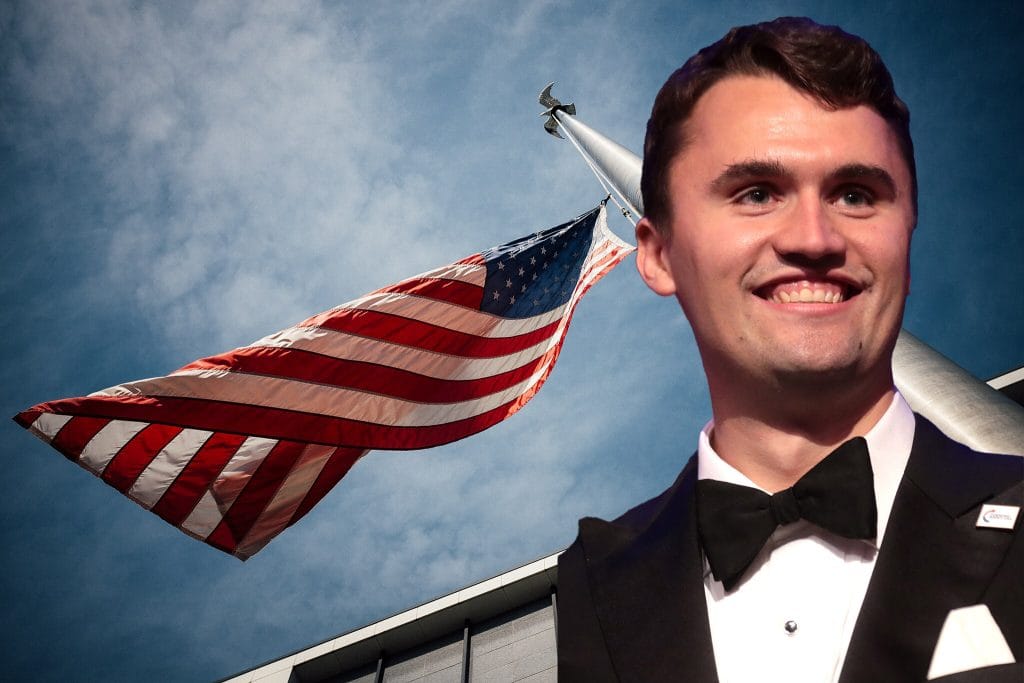Feature Story: by
It could be a sleepy village in Tuscany were it not for the bomb shelters underneath the school and the whirring sound of military helicopters overhead.
Nestled in a hill overlooking the Ayalon Valley, this seemingly idyllic conurbation is the only place in the world where Palestinian and Jewish Israeli families purposefully live and learn together.
Called ‘Neve Shalom’ in Hebrew, ‘Wahat al-Salam’ in Arabic, and ‘Oasis of Peace’ in English, it is a unique spot daring to prove that Israelis and Palestinians can in fact live together in harmony.
Established in 1972 by Father Bruno Hussar – an Egyptian Jewish man who later converted to Catholicism – it was designed to be a model and template for true binational peace across the country.
‘There are many cities in Israel where Jews and Palestinians ‘coexist’ because they live side-by-side and nobody is killing the other’, Palestinian village resident and human rights activist Samah Salamine, 49, tells me. ‘But for us, this bar is too low.
‘We wanted to build a bi-national, bi-lingual, shared and equal society.’
This is no small feat as war rages on between Israel and Palestine in the wake of the October 7 terror attacks by Hamas.
To understand its peace model as well as its challenges, Jamie Wiseman and I spent two days here meeting its Jewish, Muslim and Christian residents.
Our visit coincided with the collapse of the Israel-Hamas ceasefire deal – an ominous sign.
A spate of devastating Israeli airstrikes had, earlier that morning, pummeled Gaza killing hundreds of Palestinains.
As we walk towards the brightly coloured primary school, decorated with peace signs and rainbows, the children and their teachers comfortably switch between Hebrew and Arabic as they run around the playground kicking footballs and performing acrobatic tricks.
When the children hear we are from England – both Palestinian and Jewish students alike start yelling their favourite premier league football teams and players at us (Jude Bellingham proves especially popular).
Many of the Palestinian children will be leaving school early this month to observe the Muslim festival of Ramadan – one of the many unique accommodations the Israeli establishment makes for its mixed students.
Residents leave their doors unlocked and neighbours gaily wave at each other in the streets.
As Jamie and I meander round the houses it is easy to feel protected and briefly forget the horrors of war. But there are reminders everywhere.
Among the most outspoken residents of this village is 13-year-old Ahava [which translates as Love] Raviv.
Her chocolate-coloured hair is tied back in a messy braid.
She is confident, articulate and nuanced in her thoughts as she speaks to us in American accented English – one of three languages she is fluent in:
‘I remember when I found out from my American friends that the US doesn’t have bomb shelters. I was shocked! What if there is a rocket, I asked? They were like, who will fire a rocket at us?’
Since October 7 2023 thousands of rockets have been fired into Israel by Hamas in Gaza, Hizballah in Lebanon, the Houthis in Yemen, and Iran.
‘Do you have bomb shelters in the UK?’ she asks after a pause.
When I reply in the negative she stares at me in surprise.
When it comes to conscription to the army – mandatory for all Jewish residents of Israel – Ahava, who will be drafted in less than 5 years time, has complicated feelings:
‘I’ve been thinking about this a lot and right now I don’t want to do it.
‘I don’t feel like it is right to serve my country [in the army] when I believe my country and its leader have bad intentions.
‘Netanyahu doesn’t think in the right mindset. I don’t think he’s a person that I would want to serve.
‘Of course, I’d like to serve the country, like in hospitals or by volunteering in schools. I think that could be cool instead. Doing a different form of national service.’
When I ask how she feels about potentially being sent to prison for objecting to her military duties, she is unwavering in her convictions: ‘I don’t mind. Really, I have strong feelings about it, and it’s totally fine for people not to agree with me.’
National Service is a legal alternative for those who do not wish to serve in the military.
But this is not the first time the issue of conscription has threatened to disrupt the fragile peace maintained by those in the village.
Palestinian and other Arab residents of Israel are exempt from mandatory conscription but are welcome and encouraged to volunteer in the IDF. Many do.
But in the village, army service is contentious.
Palestinian Samah is forthright in his thoughts: ‘If you ask me I don’t want anyone to go to the army. I don’t want my neighbours’ children to do this.
‘It’s violent and we educate people that you can achieve peace without killing innocent people.
‘There is certainly another way.’
Samah worries constantly her Palestinian sons will be brutalised by IDF soldiers when outside the village in an increasingly militarised Israeli society.
‘When my 17-year-old son is sitting on a bus in Jerusalem and he calls me, I tell him to speak to me in Hebrew.
‘I don’t want him to speak in Arabic in public in case some soldier thinks he is doing something suspicious and shoots him.
‘My other son is currently studying architecture at Haifa University.
‘He is surrounded by students carrying M16s around campus and who speak openly about what they did to Palestinains in Gaza.’
Eldad Joffee, the 70-year-old Jewish mayor of the town who assumed the position on October 8 2023, served in a non-combat role in the IDF over 50 years ago. He also served in the reserves but doesn’t anymore.
‘I haven’t had any challenges from the other residents because of my involvement in the IDF.
‘But I wouldn’t serve today,’ he says.
‘When it came to kids time, my wife and I insisted that our kids didn’t serve in the occupied territories – and they respected that.
‘And in terms of my grandkids I would actively try and prevent them from serving.’
But these are not opinions shared by many Israelis.
Most would argue that conscientious objectors are betraying their nation and neglecting their duties, particularly in the wake of the Hamas attack.
After all it was soldiers – including Arab soldiers – who saved the lives of thousands of innocents on October 7 and soldiers who sacrificed themselves to rescue hostages like Noa Argamani from the clutches of bloodthirsty terrorists.
These are just some of the contentious ideas espoused by residents of Neve Shalom/ Wahat al-Salam.
The root of some of these radically pro-peace ideals can be found in The School for Peace – the primary school located in the centre of town.
In wider Israeli society, schools are split into four distinct tracks: state-secular, state-religious, state-Arab, and private.
Though Jewish and Arab parents can send their children to any public school they wish as long as it’s in their educational district, few do – opting to stick to their creed due to cultural, geographical or religious reasons.
Neve Shalom/ Wahat al-Salam was the first school in Israel to adopt a fully integrated approach when it was founded by community members in 1984. There are now a handful of others in existence catering to around 1,000 students.
Samah is one of Israel’s biggest advocates for integrated schooling: ‘Despite being born in Israel, I didn’t meet my first Jewish friend until I went to Hebrew University,’ she says candidly. She only moved to the village in 2000 so was educated in the traditional, segregated system.
‘Many Jewish Israelis have, I found, stereotypical understandings about Arab women and Muslim women.
‘They believe we are oppressed and abused and all kinds of nonsense.
‘This is because in the schools Jewish people in Israel won’t usually learn anything about Palestinian history or our story. It’s not told.’
Due to this split society, some Palestinian citizens of Israel find it is hard to seamlessly blend in with their Jewish neighbours after they leave schooling: ‘When I first started speaking Hebrew to the other Jewish students [at university] they would laugh at me and I couldn’t understand why.
‘I asked them and they told me I was speaking the equivalent of Shakespearean English to order a coffee.’
Due to these experiences, Samah, is determined to champion another way:
‘There are around 7 million Palestinains and 7 million Jewish citizens of Israel. No one can hide from this reality.
‘Apparently neither people are going anywhere. So we are trying to find a new way.’
‘That’s what we’re trying to build in Neve Shalom/ Wahat-al Salam.’
In these unique educational spaces, Arab and Jewish school children are taught side by side and students are immersed equally in both cultures, languages and histories.
Children – for instance – are taught to mark both Yom Haatzmaut – Israel’s national independence day – and the Nakba, known as ‘the catastrophe’ in Arabic. They fall on the same day but contradict each other ideologically because Yom Haatzmaut recalls Israel’s Declaration of Independence in 1948, while the Nakba refers to the ‘disastrous’ displacement of Palestinians during the Arab-Israeli war of that year. The library is stocked with children’s books written in both Arabic and Hebrew.
But many outside this place will not accept both narratives.
Extremist Jewish settlers, who reject the idea of co-existence, have repeatedly targeted the villagers and their peace school.
In 2020 the Neve Shalom/ Wahat al-Salam School for Peace – which sits in the centre of the town – was set ablaze, completely destroying it.
It was rebuilt in 2023 thanks to generous donations from The Harrison-Frank Family Foundation – based in the UK.
But intimidation efforts from Jewish settlers have intensified these past 18 months as a result of growing sectarian tensions exacerbated by the war.
Locals have been forced to employ 24/7 security patrols as well as build gates and purchase security cameras.
Some Palestinains have also grown increasingly fearful of ‘normalising’ relations with Jewish Israelis in this climate.
‘Normalisation’ refers to the process of improving diplomatic, economic, cultural, and social ties with Israel – something rejected by some extremist pro-Palestinian campaigners who refuse to acknowledge the existence of a Jewish state in the region.
Picking up her 5-year-old son outside the school gates we meet Rimah Mufid, 38, a heavily pregnant Palestinian news anchor.
‘The problem here in Israel is that we don’t know each other – the Arab and the Jewish’ Rimah explains.
‘But some Palestinains in Jerusalem don’t want to send their children to a school to learn with Jewish people.
‘It’s not an easy idea for them.’
At the end of the working day many of the locals gather in the local cafe owned by Rayek – a Palestinian Christian whose family has lived in Nazareth for more than 400 years. Jewish and Muslim residents alike gossip, laugh and relax in this quaint hub in the centre of town. It is impossible to distinguish between the Palestinian and Jewish locals.
Jewish resident Ahava Raviv, who is joyfully eating an icecream, tells me about her love for Arabic.
‘It is such a gorgeous language. I just love the way it sounds’ she says.
‘But if I’ll be with my Muslim friend or Arab friend out of, like, the village and you speak Arabic or something, then people will judge us.’
This reality is one of the reasons it is hard to imagine the concept of Neve Shalom / Wahat al-Salam succeeding on a bigger scale and expanding throughout Israel as was first envisioned by the founders.
Everyone we meet in the village chooses to live there and opt into this radical, binational pro-peace society.
Though ethnically diverse they all share the exact same mindset needed for this concept to work.
‘I don’t believe any better solution exists than this way of living’ the mayor confides, candidly.
‘My values haven’t changed – those of justice, freedom and human rights.
‘But since October 7 I have lost faith that this template could work in wider society.’
Nonetheless there are currently 200 families sitting on the waiting list trying to move in. The main barrier is money and space, not faith.
This for Samah is a positive sign.
‘October 7 was a disaster’ she admits.
‘Even people here lost faith in the model. But for me it showed we need to try harder. Do more. There are no shortcuts for peace.
‘On the first day school restarted after October 7 2023 all the parents – both Jewish and Palestinian – turned up with their children, laughing and talking together just like before.
‘We weren’t sure people whether people would come. But then they did. Every single student.
‘It was a miracle.’
It would certainly take a miracle to fix this ostensibly hopeless situation in the Middle East.
But perhaps there is no better place than an ‘oasis of peace’ in the so-called holy land for a miracle like that to take place.

